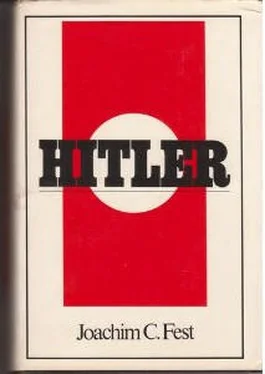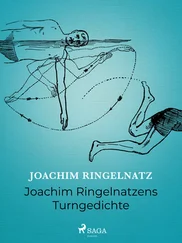Joachim Fest - Hitler
Здесь есть возможность читать онлайн «Joachim Fest - Hitler» весь текст электронной книги совершенно бесплатно (целиком полную версию без сокращений). В некоторых случаях можно слушать аудио, скачать через торрент в формате fb2 и присутствует краткое содержание. Город: New York, Год выпуска: 1974, ISBN: 1974, Издательство: A Harvest Book, Жанр: Биографии и Мемуары, на английском языке. Описание произведения, (предисловие) а так же отзывы посетителей доступны на портале библиотеки ЛибКат.
- Название:Hitler
- Автор:
- Издательство:A Harvest Book
- Жанр:
- Год:1974
- Город:New York
- ISBN:9780151416509
- Рейтинг книги:5 / 5. Голосов: 1
-
Избранное:Добавить в избранное
- Отзывы:
-
Ваша оценка:
- 100
- 1
- 2
- 3
- 4
- 5
Hitler: краткое содержание, описание и аннотация
Предлагаем к чтению аннотацию, описание, краткое содержание или предисловие (зависит от того, что написал сам автор книги «Hitler»). Если вы не нашли необходимую информацию о книге — напишите в комментариях, мы постараемся отыскать её.
Index. Translated by Richard and Clara Winston. A Helen and Kurt Wolff Book
Hitler — читать онлайн бесплатно полную книгу (весь текст) целиком
Ниже представлен текст книги, разбитый по страницам. Система сохранения места последней прочитанной страницы, позволяет с удобством читать онлайн бесплатно книгу «Hitler», без необходимости каждый раз заново искать на чём Вы остановились. Поставьте закладку, и сможете в любой момент перейти на страницу, на которой закончили чтение.
Интервал:
Закладка:
But the question remains whether Hitler was not the last politician who could so largely ignore the weight of conditions and interests; whether the coercion of objective factors has not grown visibly stronger, and whether with this the historical possibility of a great doer has not grown ever smaller. For, unquestionably, historical rank is dependent upon the freedom that the person who acts maintains in the face of circumstances. In a secret speech delivered in the early summer of 1939, Hitler declared: “There must be no acceptance of the principle of evading the solution to problems by adjustment to circumstances. Rather, the task is to adjust circumstances to requirements.” 10Following this motto, he, the “visionary,” practiced an imitatio of the great man; the attempt was boldly carried to the utmost extreme, and ultimately failed. It would appear that such attempts ended with him—just as so much else ended with him.
If men do not make history in the way that traditional hero-worshiping literature assumed, or do so to a far smaller extent, Hitler certainly made much more history than many others. But at the same time history made him, to an altogether extraordinary degree. Nothing entered into this “unperson,” as he is defined in one of the following chapters, that was not already present; but whatever did enter acquired a tremendous dynamic. Hitler’s biography is the story of an incessant, intensive process of interchange.
We are still asking, however, whether historical greatness can be associated with a hollow individuality. It is challenging to imagine what Hitler’s fate would have been had history not produced the circumstances that first awakened him and made him the mouthpiece of millions of defense complexes. It is easy to picture his ignored existence on the fringes of society, to see him embittered and misanthropic, longing for a great destiny and unable to forgive life for having refused him the heroic role he craved. “For the oppressive thing was… the complete lack of attention we found in those days from which I suffered most,” Hitler wrote concerning the period of his entry into politics. 11The collapse of order, the age’s anxieties and climate of change, played into his hands by giving him the chance to emerge from the shadow of anonymity. Great men, in Burckhardt’s judgment, are needed specifically in times of terror. 12
The phenomenon of Hitler demonstrates, to an extent surpassing all previous experience, that historical greatness can be linked with paltriness on the part of the individual concerned. For considerable periods his personality seemed disintegrated, as if it had evaporated into unreality; and it was this seemingly fictitious character of the man that misled so many conservative politicians and Marxist historians—in curious agreement—to regard Hitler as the instrument for the ends of others. Far from possessing any greatness and any political, let alone historical, stature, he seemed to embody the very type of the “agent,” one who acts for others. But both the conservatives and the Marxists were deceiving themselves. It was actually an ingredient in Hitler’s recipe for tactical success that he made political capital out of this mistake, in which class resentment against the petty bourgeois was then, and still is, expressed. His biography includes, among other things, the story of a gradual disillusionment. In his day he excited a good deal of ironic contempt, and that attitude persists, though kept in check by the memory of the toll of lives he took. But it was, and still is, a misreading of his character.
The course of this life, and the pattern of events themselves, will throw light upon the whole matter. Yet here we may well ask ourselves a few pertinent questions. If Hitler had succumbed to an assassination or an accident at the end of 1938, few would hesitate to call him one of the greatest of German statesmen, the consummator of Germany’s history. The aggressive speeches and Mein Kampf, the anti-Semitism and the design for world dominion, would presumably have fallen into oblivion, dismissed as the man’s youthful fantasies, and only occasionally would critics remind an irritated nation of them. Six and one-half years separated Hitler from such renown. Granted, only premature death could have given him that, for by nature he was headed toward destruction and did not make an exception of himself. Can we call him great?
I. AN AIMLESS LIFE
Background and Departure
The need to magnify themselves, to bestir themselves, is characteristic of all illegitimates.
Jacob BurckhardtAll through his life he made the strongest efforts to conceal as well as to glorify his own personality. Hardly any other prominent figure in history so covered his tracks, as far as his personal life was concerned. With a carefulness verging on pedantry, he stylized his persona. The concept he had of himself was more like a monument than like a man. From the start he endeavored to hide behind it. Rigid in expression, early conscious of his calling, at the age of thirty-five he had already withdrawn into the concentrated, frozen inapproachability of the Great Leader. In obscurity legends form; in obscurity the aura of being one of the elect can grow. But that obscurity which cloaks the early history of his life also accounted for the anxieties, the secrecy, and the curiously histrionic character of his existence.
Even as leader of the struggling young NSDAP (National Socialist Workers’ Party) he regarded interest in his private life as insulting. As Chancellor he forbade all publicity about it. 1The statements of all those who knew him more than casually, from a friend of his youth to the members of his intimate dinner circle, stress how he liked to keep his distance and preserve his privacy. “Throughout his life he had an indescribable aloofness about him.” 2He spent several years in a “home for men”; but of all the many people who met him there, few could recall him later. He moved about among them as a permanent stranger, attracting no attention. At the beginning of his political career he jealously took care that no pictures of him were published. Some have explained this obsession as the strategy of a bom propagandist; it has been argued that as a man of mystery he deliberately aroused interest in himself.
But even if this is so, his efforts at concealment did not spring entirely from the desire to introduce a note of allure into his portrait. Rather, we have here the anxieties of a constricted nature overwhelmed by a sense of its own ambiguousness. He was forever bent on muddying still further the opaque background of his origins and family. When, in 1942, he was informed that a plaque had been set up for him in the village of Spital, he flew into one of his violent rages. He transformed his ancestors into “poor cottagers.” He falsified his father’s occupation, changing him from a customs official to a postal official. He curtly repulsed the relatives who tried to approach him. For a time his younger sister Paula ran his household at Obersalzberg, but he made her take another name. After the invasion of Austria he forbade Jörg Lanz von Liebenfels to publish; he owed some vague, early suggestions to this man, the eccentric exponent of a racist philosophy. Reinhold Hanisch was his onetime chum from his days in the home for men; he had Hanisch murdered. He insisted that he was no one’s disciple. All knowledge had come to him from his own inspiration, by the grace of Providence and out of his dialogues with the Spirit. Similarly, he would be no one’s son. The picture of his parents emerges in the dimmest of outlines from the autobiographical chapters of his book, Mein Kampf, and only to the extent that it supported the legend of his life.
Читать дальшеИнтервал:
Закладка:
Похожие книги на «Hitler»
Представляем Вашему вниманию похожие книги на «Hitler» списком для выбора. Мы отобрали схожую по названию и смыслу литературу в надежде предоставить читателям больше вариантов отыскать новые, интересные, ещё непрочитанные произведения.
Обсуждение, отзывы о книге «Hitler» и просто собственные мнения читателей. Оставьте ваши комментарии, напишите, что Вы думаете о произведении, его смысле или главных героях. Укажите что конкретно понравилось, а что нет, и почему Вы так считаете.





![Traudl Junge - Hitler's Last Secretary - A Firsthand Account of Life with Hitler [aka Until the Final Hour]](/books/416681/traudl-junge-hitler-s-last-secretary-a-firsthand-thumb.webp)






